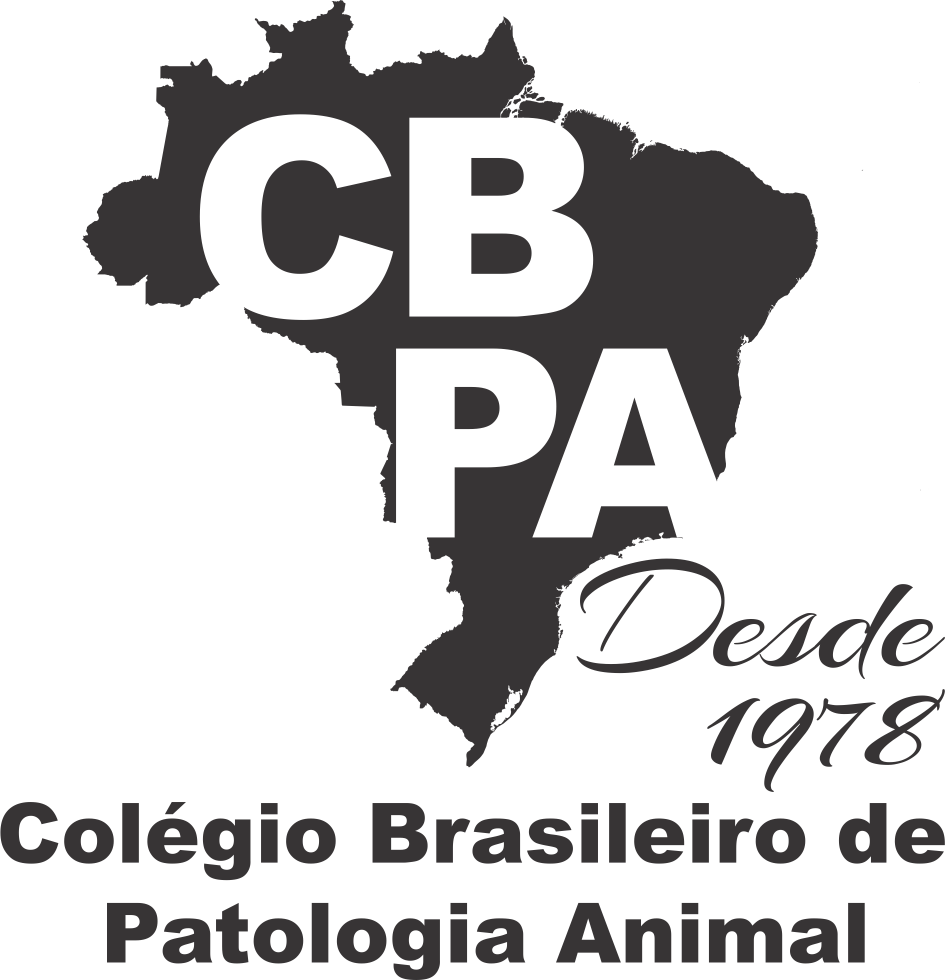Resultado da pesquisa (2)
Termo utilizado na pesquisa RFLP-PCR
#1 - Identification of new flagellin-encoding fliC genes in Escherichia coli isolated from domestic animals using RFLP-PCR and sequencing methods, 33(4):417-422
Abstract in English:
ABSTRACT.- Moura C., Tiba M.R., Silva M.J. & Leite D.S. 2013. Identification of new flagellin-encoding fliC genes in Escherichia coli isolated from domestic animals using RFLP-PCR and sequencing methods. Pesquisa Veterinária Brasileira 33(4):417-422. Universidade Paulista, Av. Armando Giassetti 577, Vila Hortolândia, Trevo Itu/Itatiba, Jundiaí, SP 13214-525, Brazil. E-mail: cmoura.bio@gmail.com
Identification of Escherichia coli requires knowledge regarding the prevalent serotypes and virulence factors profiles allows the classification in pathogenic/non-pathogenic. However, some of these bacteria do not express flagellar antigen in vitro. In this case the PCR-restriction fragment length polymorphism (RFLP-PCR) and sequencing of the fliC may be suitable for the identification of antigens by replacing the traditional serology. We studied 17 samples of E. coli isolated from animals and presenting antigen H nontypeable (HNT). The H antigens were characterized by PCR-RFLP and sequencing of fliC gene. Three new flagellin genes were identified, for which specific antisera were obtained. The PCR-RFLP was shown to be faster than the serotyping H antigen in E. coli, provided information on some characteristics of these antigens and indicated the presence of new genes fliC.
Abstract in Portuguese:
RESUMO.- Moura C., Tiba M.R., Silva M.J. & Leite D.S. 2013. Identification of new flagellin-encoding fliC genes in Escherichia coli isolated from domestic animals using RFLP-PCR and sequencing methods. [Identificação de novas flagelinas codificadas por fliC em Escherichia coli isoladas de animais domésticos utilizando RFLP-PCR e sequenciamento.] Pesquisa Veterinária Brasileira 33(4):417-422. Universidade Paulista, Av. Armando Giassetti 577, Vila Hortolândia, Trevo Itu/Itatiba, Jundiaí, SP 13214-525, Brazil. E-mail: cmoura.bio@gmail.com
A identificação da Escherichia coli requer conhecimento sobre os sorotipos e fatores de virulência prevalentes permitindo a classificação em patogênico/não patogênico. No entanto, algumas destas bactérias não expressam o antígeno flagelar in vitro. Neste caso, o PCR-restriction fragment length polymorphism (RFLP-PCR) e o sequenciamento do gene fliC podem ser adequados para a identificação desses antígenos, substituindo a sorologia tradicional. Nesta pesquisa foram estudadas 17 amostras de E. coli isoladas de animais e que apresentavam antígeno H não tipável (HNT). Os antígenos H foram caracterizados por PCR-RFLP e sequenciamento do gene fliC. Três novos genes da flagelina foram identificados, para os quais anti-soros específicos foram obtidos. A técnica PCR-RFLP mostrou-se mais rápida que a sorotipagem do antígeno H em E. coli, fornecendo informações sobre algumas características desses antígenos e indicou a presença de novos genes fliC.
#2 - Comparação genotípica de isolados de Corynebacterium pseudotuberculosis de caprinos e ovinos do sertão de Pernambuco, p.481-487
Abstract in English:
ABSTRACT.- Abreu S.R.O., Mota R.A., Rosinha G.M.S., Forner O., Pinheiro Júnior J.W., Pereira R.R.B., Castro R.S., Elisei C., Soares C.S., Araújo F.R. & Madureira R.C. 2008. [Genotypic comparison between Corynebacterium pseudotuberculosis samples obtained from sheep and goats with caseous lymphadenitis, raised in the semi-arid region of Pernambuco.] Comparação genotípica de isolados de Corynebacterium pseudotuberculosis de caprinos e ovinos do sertão de Pernambuco. Pesquisa Veterinária Brasileira 28(10):481-487. Clínica Escola de Medicina Veterinária, Faculdade de Ciências Biológicas e da Saúde, Centro de Ensino Superior de Maceió, Rodovia Divaldo Suruagy s/n, Quadra 4, Lote 4, Praia do Francês, Marechal Deodoro, AL 57160-000, Brazil. E-mail: silviobiotec@yahoo.com.br
The objective was to genotypically compare 35 samples of Corynebacterium pseudotuberculosis obtained from abscesses of sheep and goats diagnosed with caseous lymphadenitis originated from 5 different municipalities in the semi-arid region of Pernambuco, Brazil. The RFLP-PCR technique with Hpy-Ch4 and Msp I and Pst I Msp I restriction enzimes was used to fingerprint the genes rpoB and pld, respectively. The results demonstrate that there was no difference on the fragments banding pattern among samples, independently of the host species or geographic area studied, defining a homogeneous profile of C. pseudotuberculosis responsible for superficial abscesses for the region.
Abstract in Portuguese:
ABSTRACT.- Abreu S.R.O., Mota R.A., Rosinha G.M.S., Forner O., Pinheiro Júnior J.W., Pereira R.R.B., Castro R.S., Elisei C., Soares C.S., Araújo F.R. & Madureira R.C. 2008. [Genotypic comparison between Corynebacterium pseudotuberculosis samples obtained from sheep and goats with caseous lymphadenitis, raised in the semi-arid region of Pernambuco.] Comparação genotípica de isolados de Corynebacterium pseudotuberculosis de caprinos e ovinos do sertão de Pernambuco. Pesquisa Veterinária Brasileira 28(10):481-487. Clínica Escola de Medicina Veterinária, Faculdade de Ciências Biológicas e da Saúde, Centro de Ensino Superior de Maceió, Rodovia Divaldo Suruagy s/n, Quadra 4, Lote 4, Praia do Francês, Marechal Deodoro, AL 57160-000, Brazil. E-mail: silviobiotec@yahoo.com.br
The objective was to genotypically compare 35 samples of Corynebacterium pseudotuberculosis obtained from abscesses of sheep and goats diagnosed with caseous lymphadenitis originated from 5 different municipalities in the semi-arid region of Pernambuco, Brazil. The RFLP-PCR technique with Hpy-Ch4 and Msp I and Pst I Msp I restriction enzimes was used to fingerprint the genes rpoB and pld, respectively. The results demonstrate that there was no difference on the fragments banding pattern among samples, independently of the host species or geographic area studied, defining a homogeneous profile of C. pseudotuberculosis responsible for superficial abscesses for the region.









